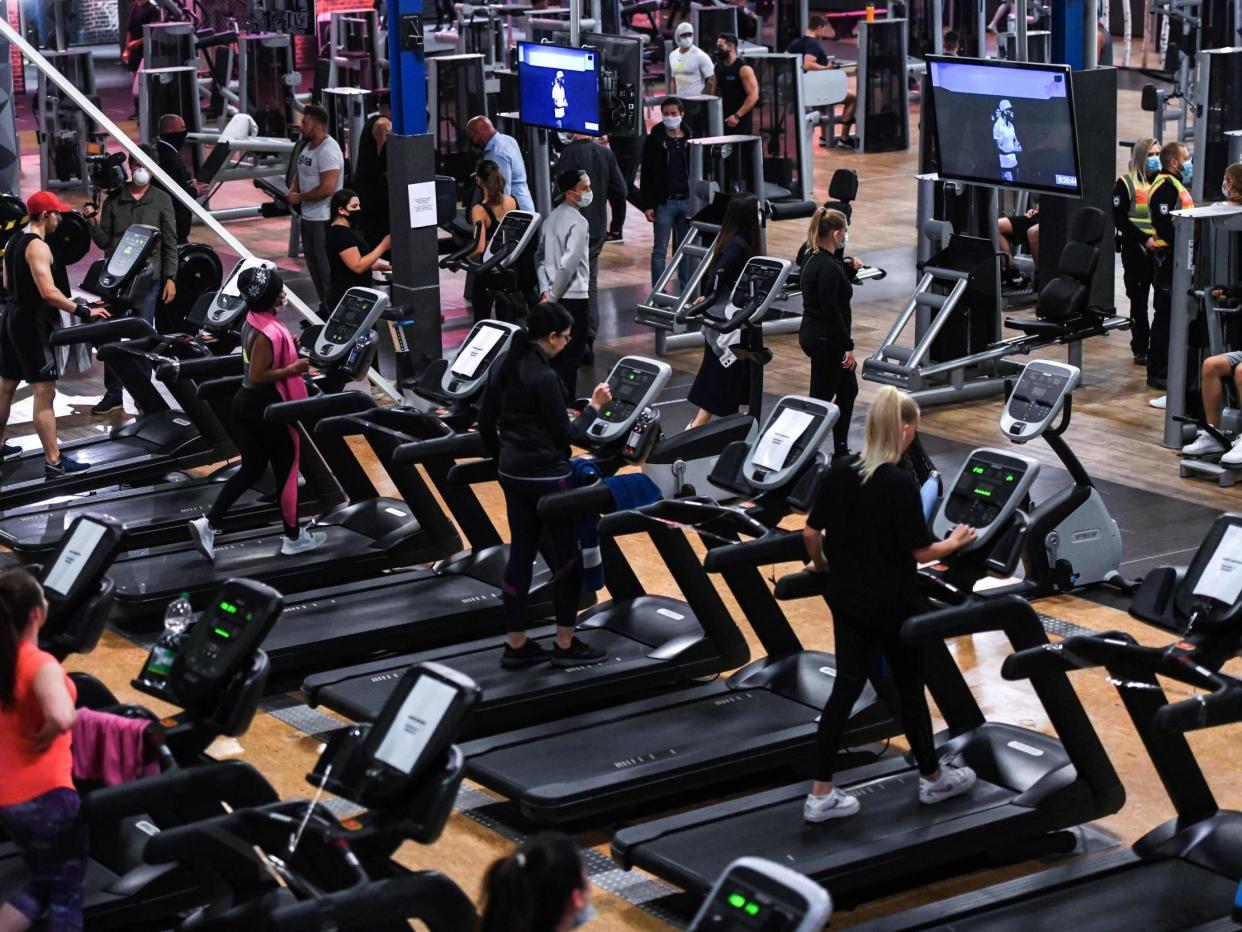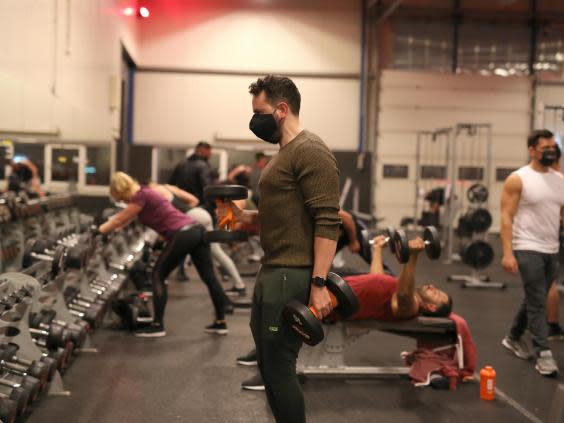Coronavirus: Germany lifts more lockdown measures despite ‘critical’ infection rate

Germany is pressing ahead with its plans to further ease nationwide lockdown restrictions – despite the country’s infection rate remaining above the critical threshold for two consecutive days.
According to the Robert Koch Institute (RKI), the reproduction rate – the estimated number of people a confirmed patient infects – rose to 1.1 on Saturday and Sunday.
If accurate, it would suggest that the number of infections is now growing rather than falling, raising concerns of a second wave across the country.
Nonetheless, the German government, amid mounting political pressure and nationwide protests, is continuing with its plans to kickstart the economy after weeks of life under lockdown.
In the western state of North Rhine-Westphalia (NRW), gyms and sports venues were allowed to open on Monday morning, while restaurants can operate under certain conditions.
Brandenburg and Baden-Wurttemberg, among others, are relaxing restrictions on public gatherings. In Bavaria, zoos, museums and libraries have been given the green to reopen with strict social distancing in place.
This follows the earlier reopening of shops, playgrounds, museums, and churches across the country, along with secondary schools only.
However, with responsibility for education devolved to Germany’s 16 federal states, some have been moving quicker than others. In Bavaria, one of the country’s worst-hit regions, school openings had been delayed until Monday.
To reduce the risk of transmission, class sizes have been cut in half, one-way systems enforced in corridors and lunch breaks staggered.
Masks and gloves have even been handed out among staff and students at some schools, such as the ISR International School on the Rhine, near Dusseldorf.
Eileen Lyons, the school's director, told The Independent that students have also had the opportunity to “choose between virtual classes or physical classes at ISR since 9 March, depending on the level of risk of the students and families.”
“This has allowed us to provide continuous lessons from Kindergarten through to Grade 12,” she added.
The green light has also been given for the return of the Bundesliga, Germany’s top football league, which is due to restart next weekend – despite the recent positive tests recorded among Dynamo Dresden’s squad.
Chancellor Angela Merkel stressed that people needed to continue to keep social distancing despite the changes.
"It's very important to me to again draw attention to the fact that we're entering a new phase of the pandemic and that it will now be necessary, with all the easing of measures, to be sure that people stick to the basic rules i.e. keeping their distance, wearing mouth and nose protection and showing consideration for each other," Merkel told reporters.
The easing of restrictions has been accompanied by nationwide calls for the accelerated lifting of containment measures.
On Saturday, thousands of protestors gathered in a number of major German cities, including Frankfurt, Munich, Stuttgart and Berlin, where about 30 people were arrested outside the Reichstag for not obeying social distancing measures.
Despite the growing pressure to reopen society, with many of the federal states eager to return to some degree of normality, questions continue to persist over the country’s current course of action which appears to have sparked a recent spike in cases.
More than 1,250 new confirmed cases were reported on Saturday, many of which were linked to outbreaks in slaughterhouses and nursing homes. Before the lockdown was eased, the number of daily cases had fallen below the 1,000 mark.
Many of the 205 people infected in a meat plant in Coesfeld, a city in NRW, were migrant workers from eastern Europe living in shared accommodation. NRW Health Minister Karl-Josef Laumann said that an estimated 17,000-20,000 employees in all of the state’s 35 slaughterhouses would be tested for coronavirus, including all 1,200 workers at the Coesfeld plant.

While many have called for greater action in relaxing restrictions, others have criticised the government for moving too quickly.
Karl Lauterbach, a Social Democrat lawmaker and professor of epidemiology, has warned that Covid-19 could start spreading again quickly after seeing large crowds out and about on Saturday in his home city of Cologne.
“It has to be expected that the R rate will go over 1 and we will return to exponential growth,” Prof Lauterbach said in a tweet. “The loosening measures were far too poorly prepared.”
To help contain any future coronavirus clusters, chancellor Angela Merkel last week unveiled an “emergency brake” which will require local authorities to reimpose restrictions if cases rise above a threshold of 50 per 100,000 people.
In recent days, five areas have broken the threshold, including the southern town of Rosenheim where a number of cases were found in a refugee shelter. It was not immediately clear whether officials would reimpose restrictions across the town or limit measures to the affected asylum centre.
Although much has been made of Germany’s rising R rate, the RKI has also warned against jumping to conclusions.
The institute said that because of the fluctuations in statistics it could not yet be assessed “whether the trend of new infections, which has been falling in recent weeks, has continued or whether the number of cases has increased again.”
The RKI also warned last month that the dynamics of the pandemic should not be judged on the R rate alone. It is an “important factor”, but “only one measure among many,” said RKI president Lothar Wieler.
Read more
How to help the elderly and vulnerable during the coronavirus
How to feel less anxious about the coronavirus
How to be productive when working from home during coronavirus

